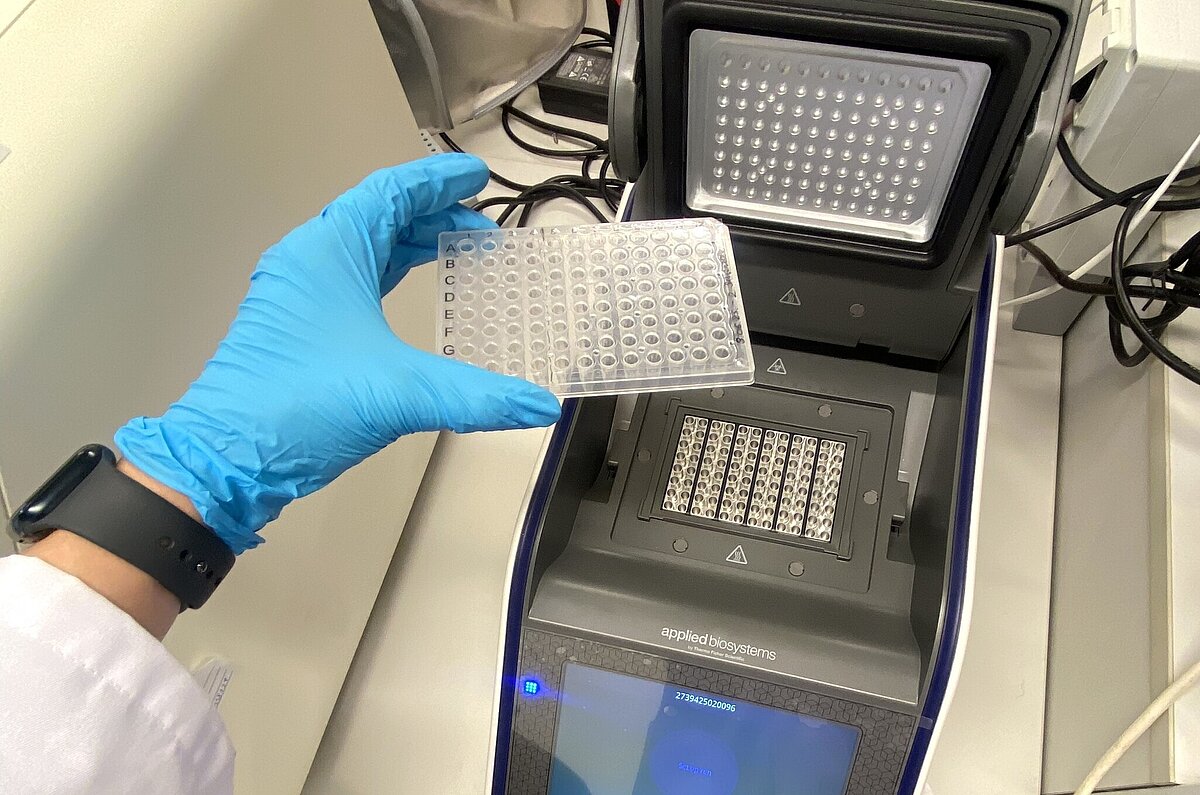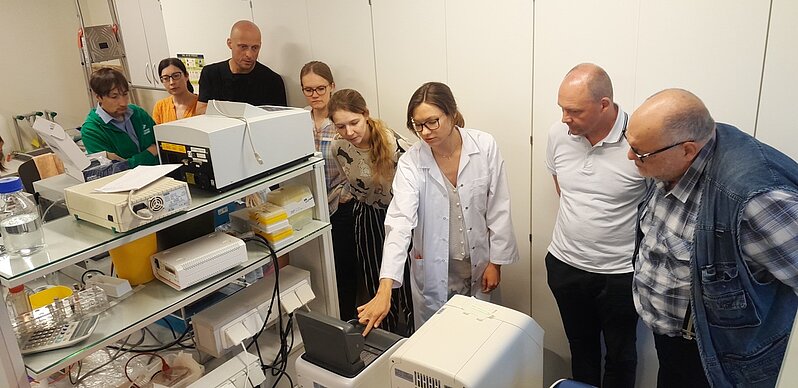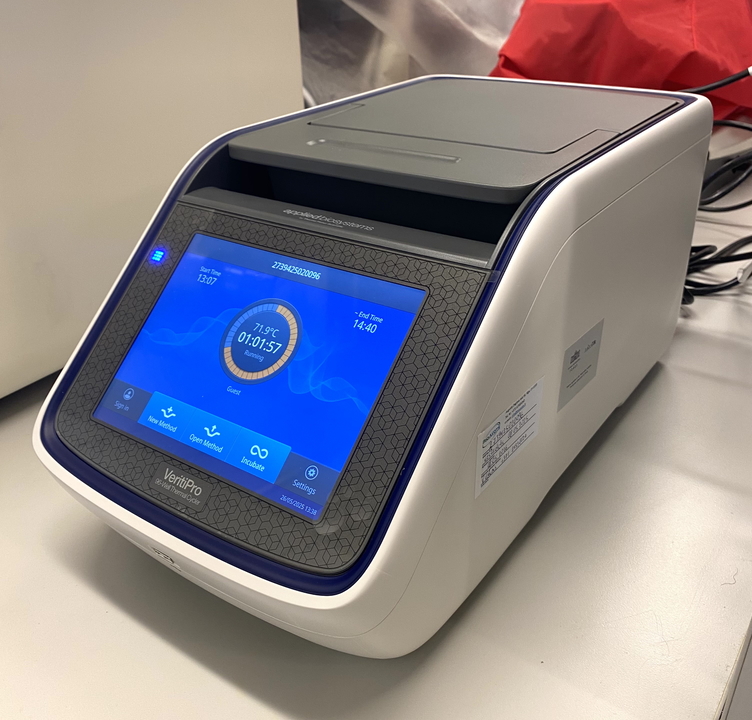
The UL Foundation support of 9999 euro provided within the framework of “MikroTik project competition for the purchase of research equipment in the field of natural, technological and medical sciences”, a 96-field VeritiProTM Thermal Cycler has been purchased to enhance research at UL. The equipment is used for research projects and study papers at the UL Faculty of Medicine and Life Sciences (FMLS) and the UL Institute of Microbiology and Biotechnology (IMB).
“The device is special in that it is not only able to quickly and accurately perform PCR on a large number of samples, but is also equipped with VeriFlex temperature control technology and touchdown PCR, thus significantly increasing the PCR specificity and reducing the time for PCR temperature optimization, thus decreasing time consumption in reaction component optimization experiments, overall accelerating the acquisition of results and thereby ensuring greater access to equipment for more researchers,” says Elza Kaktiņa, researcher and doctoral student at the UL FMLS.

Without PCR, which is one of the basic methods of molecular biology and medical diagnostics, it is impossible to diagnose diseases, clone or sequence, or even detect pathogens or conduct forensic medicine. This modern facility significantly increases the capacity of the molecular biology laboratories of UL, providing an opportunity not only for researchers, but also students of doctoral and other study programmes to develop their qualification and final theses in biology and biotechnology.
Since June, the device has been actively employed in several research projects and development of final research papers, including bachelor’s and master’s theses – its wide range of applications makes a significant contribution to the implementation of research.

One of the projects realised by using the newly acquired equipment, is the study “Finding small bacteria in large bogs: Characterizing the bog microbiome”, funded by Juris Kalnavārns Project Competition in Natural Sciences and Medicine administered by the UL Foundation. The biological diversity of bogs has been widely described and studied, however, previous studies have not addressed the microbiome – the population of microorganisms (bacteria, fungi, yeasts, viruses, etc.) that occur in any ecological niche. The newly acquired equipment enables researchers to determine the microbial diversity of bogs by amplifying and sequencing environmental DNA. As part of this research, the doctoral thesis “Discovery and characterization of new natural substances from actinobacteria of the Baltic region” is being developed by doctoral student Anitra Zīle. She uses the equipment to prepare samples for sequencing and identification of microorganisms.
The device is also applied in the Latvian Council of Science projects No. lzp-2023/1-026 “Development of DNA markers for detection of loose silky bent (Apera spica-venti) seeds in soil seed banks”and No. lzp-2022/1-0179 “Role of endophytic microbiota in the anti-viral activity of S. Nigra against type A influenza and SARS-CoV-2”.

 CONFERENCE
CONFERENCE